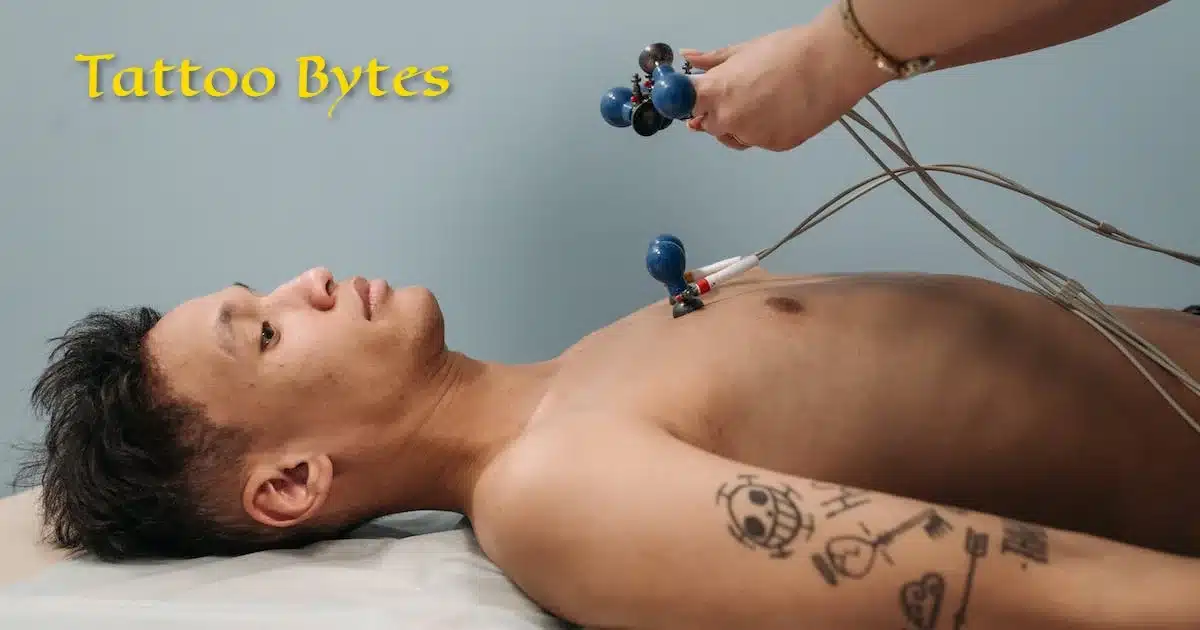Tattoo removal is an expensive and lengthy process, but many find it is worth the cost for removal of unwanted tattoos. The cost of tattoo removal depends on a variety of factors including the size, age, location, color, and type of the tattoo. On average, tattoo removal costs range from $50 to $500 per treatment session. Most tattoos require 6 to 12 sessions spaced 4-8 weeks apart, so the total cost for full removal ends up being $300 to $6,000 or more.
What Affects the Cost of Tattoo Removal?

Several factors contribute to the overall cost of laser tattoo removal:
Size of the Tattoo
Larger tattoos require more treatments and time to remove completely. Per square inch, small tattoos are often more expensive to remove than large tattoos. However, the total cost will be higher for a large tattoo.
Location on the Body
Areas like the ankles and wrists are more sensitive, making tattoo removal more complicated and expensive. Areas with more fat, like the upper arms, thighs, and stomach, are also more difficult to treat.
Age and Quality of the Tattoo
Newer and professional quality tattoos usually require fewer treatments. Amateur tattoos and older tattoos with faded ink are harder to remove completely.
Color of the Tattoo
Black and darker colored tattoos are the easiest to remove. Red, yellow, green, purple and flesh toned colors are more stubborn. Multicolor tattoos require multiple laser wavelengths.
Type of Ink
Professional inks respond better while lower quality inks are harder to eliminate. Inks with metallic or fluorescent pigments are very difficult to remove.
Laser Tattoo Removal Treatment Costs
The average cost per laser tattoo removal treatment is $200 to $500. Most tattoos require between 6 to 12 or more treatments. At $200 per session, total removal costs for a typical tattoo may range from $1,200 to $2,400. At $500 per session, you can expect to pay $3,000 to $6,000 for complete removal.
Here are typical price ranges based on size:
- Small tattoo under 2 in: $50 – $150 per session
- Medium tattoo 2-4 in: $100 – $250 per session
- Large tattoo 4-6 in: $150 – $350 per session
- Extra large tattoo over 6 in: $250 – $500 per session
So a 4 inch medium sized tattoo could cost $600 to $3,000 for removal.
Many factors affect the cost per treatment, including the clinic, location, laser type and technologies used, so get quotes from several providers. Go with an experienced laser technician. Multiple treatments are necessary but pricing packages or bundles can save money at some clinics.
Other Tattoo Removal Methods and Costs

Laser removal is the gold standard, but other tattoo removal options include:
- Surgical Excision: Cutting out smaller tattoos under 2 inches. Costs $400 to $1,500.
- Dermabrasion: Sanding tattoos down with a rotating device. Around $1,500 per session.
- Salabrasion: Salt crystals rubbed into skin with dermabrasion. $200 per treatment.
- TCA Cross: Chemical peel applied to tattoo. Costs around $500 per session.
- Cryosurgery: Freezing tattoos with liquid nitrogen. $250 per treatment.
- Intense Pulsed Light Therapy: Multispectral pulses of light. $200 to $500 per session.
These methods often don’t fully remove tattoos and lead to scarring, so lasers remain the top choice.
Factors That Affect Session Cost:
- Geographic location and clinic/provider
- Laser type used
- Technician’s experience level
- Package pricing or deals
- Tattoo size and complexity
- Your pain tolerance needing anesthesia
Shop around for the best value. Go with an experienced technician and established clinic. Get pricing estimates up front.
Does Insurance Cover Tattoo Removal?
Unfortunately, health insurance typically does not cover laser tattoo removal because it is considered an elective, cosmetic procedure. Even for tattoo regret cases, coverage is very rare.
Some options that may provide partial assistance:
- CareCredit healthcare credit card – Offers special financing for cosmetic treatments. Must qualify for credit line.
- Clinic payment plans – Many clinics offer monthly payment installments.
- Doctor pro-bono work – For traumatic or gang tattoos, some doctors offer free services.
Your best options are negotiating package deals and using clinic payment plans to spread out costs over time.
Table: Average Tattoo Removal Costs
| Tattoo Size | Average # Sessions | Cost Per Session | Total Removal Cost |
|---|---|---|---|
| Small | 6-8 | $100 | $600 – $800 |
| Medium | 8-12 | $200 | $1600 – $2400 |
| Large | 10-15 | $300 | $3000 – $4500 |
| Extra Large | 12-20 | $400 | $4800 – $8000 |
How to Save Money on Tattoo Removal
To make laser tattoo removal more affordable, consider these money-saving tips:
- Negotiate package pricing – Many clinics offer discounts for buying multiple treatments in bulk.
- Use clinic payment plans – Break up costs into smaller monthly installments interest-free.
- Join rewards programs – Earn points and save on future treatments.
- Ask about laser deals – Older or used lasers may have specials pricing.
- Consider partial removal – Fading tattoos can be cheaper than full removal.
- Remove only outlines – Clearing main outlines leaves a muted, blurred tattoo.
- Use coupons and discounts – Check clinic social media and email listings for deals.
- Buy groupons – These sometimes pop up for tattoo removal packages.
- Switch to picosecond laser – Fewer sessions may balance higher cost per treatment.
- Set a budget goal – Focus on clearing the worst sections first.
- Get free consultations – Compare rates and pricing structures.
- Join clinical trials – Research studies sometimes offer free tattoo removal.
- Barter services – Offer your own professional skills.
With some savvy negotiating and deal hunting, you can reduce the costs of erasing an unwanted tattoo over time.
How to Finance Tattoo Removal

Tattoo removal is expensive, so careful financing is key to affording treatments. Here are top options to pay for laser removal services over time:
- Credit Cards – Basic credit cards allow spreading costs over months for a large one-time purchase. Interest rates are usually high.
- Medical Credit Cards – Specialty cards like CareCredit offer deferred interest promotions on medical treatments.
- Personal Loans – Banks or online lenders provide installment loans for elective procedures. Check terms.
- Home Equity Loan – Tap available equity in your home through a line of credit.
- 401k/IRA Loan – Borrow from your retirement savings. Has payback terms.
- Doctor Payment Plans – Many clinics offer monthly payments interest-free directly through them.
- 0% Business Credit Cards – Some business cards offer 0% financing for a period of time.
- Grants – Rare, but some organizations offer grants for tattoo removal in special cases.
Weigh interest rates, costs, loan terms, and the flexibility of each option before committing to finance tattoo removal over time. Do not take out predatory loans with extremely high interest rates.
Things to Know About Tattoo Removal
Here are some important things to keep in mind about the tattoo removal process and costs:
- It’s a marathon, not a sprint – Laser removal takes numerous sessions over months or years for complete removal.
- Results aren’t immediate – Fading happens gradually with each successive session. Be patient.
- Each session matters – Skipping or delaying sessions means slower progress. Commit to the full treatment plan.
- There may be scarring – Lasers minimize scarring but some is still possible. Listen to aftercare advice.
- Not all tattoos can be removed – Some inks resistant to lasers are impossible to fully erase.
- Home removal is dangerous – DIY tattoo removal leads to scarring, open wounds and infections. Don’t do it.
- Results vary – Your body, immune system, tattoo quality and aftercare impact results. Follow your clinic’s advice.
- It is expensive – Budget adequately for multiple treatments over time. The process is not cheap.
- Shop around – Get price quotes from several providers to compare rates.
- Fading can be good enough – If budget is limited, even partial fading may be satisfactory.
Understand the commitment in terms of costs, sessions, self-care, and patience tattoo removal requires before beginning the process.
Conclusion
Tattoo removal is a significant investment in terms of both money and time. With laser treatments being the most effective removal method, you can expect to spend anywhere from $1,200 to $6,000 or more over multiple sessions to fully erase a tattoo. While not cheap, removing unwanted ink is worthwhile to many who regret a tattoo.
Carefully research removal clinics and consult with technicians to get accurate quotes for your specific tattoo. Be strategic in setting a budget and shopping around for package deals to minimize costs. While health insurance typically does not cover laser removal, you can finance treatments over time through payment plans, loans, borrowing against home equity or retirement funds, medical credit cards, and other options.
Commit fully to the lengthy process, attend all sessions, and follow aftercare diligently for the best results. While tattoo removal is costly in the short term, most find freedom from unwanted body art well worth the price long term.
FAQs
Is tattoo removal covered by insurance?
Health insurance will not cover the cost of tattoo removal as it is considered an elective, cosmetic procedure. Very rarely are exceptions made, even for tattoo regret cases.
How can I get a tattoo removed for free?
Free tattoo removal is very uncommon. Occasionally doctors offer pro bono services for removing gang related or human trafficking tattoos. Some clinical trials provide free removal for research. Grants for survivor tattoo removal may be available. But most will need to pay out of pocket.
How much does it cost to remove a small tattoo?
On average you can expect to pay $50 – $150 per session to remove a small tattoo under 2 inches. With most small tattoos requiring 6 to 10 sessions for full removal, the total cost will be $300 to $1,500.
Should I finance tattoo removal?
Financing tattoo removal can help spread the costs over time. Avoid predatory lenders and high interest loans. Favor no interest clinic payment plans first. If loaning money, prioritize options with lower rates like medical credit cards, personal installment loans, or tapping home equity lines of credit.
How can I remove my tattoo at home?
Do not attempt DIY tattoo removal. Methods like dermabrasion, acid treatments, lasers, and skin scraping cause severe skin damage, scarring, infections, and open wounds requiring medical care. Laser removal should only be performed by an experienced, licensed technician.
